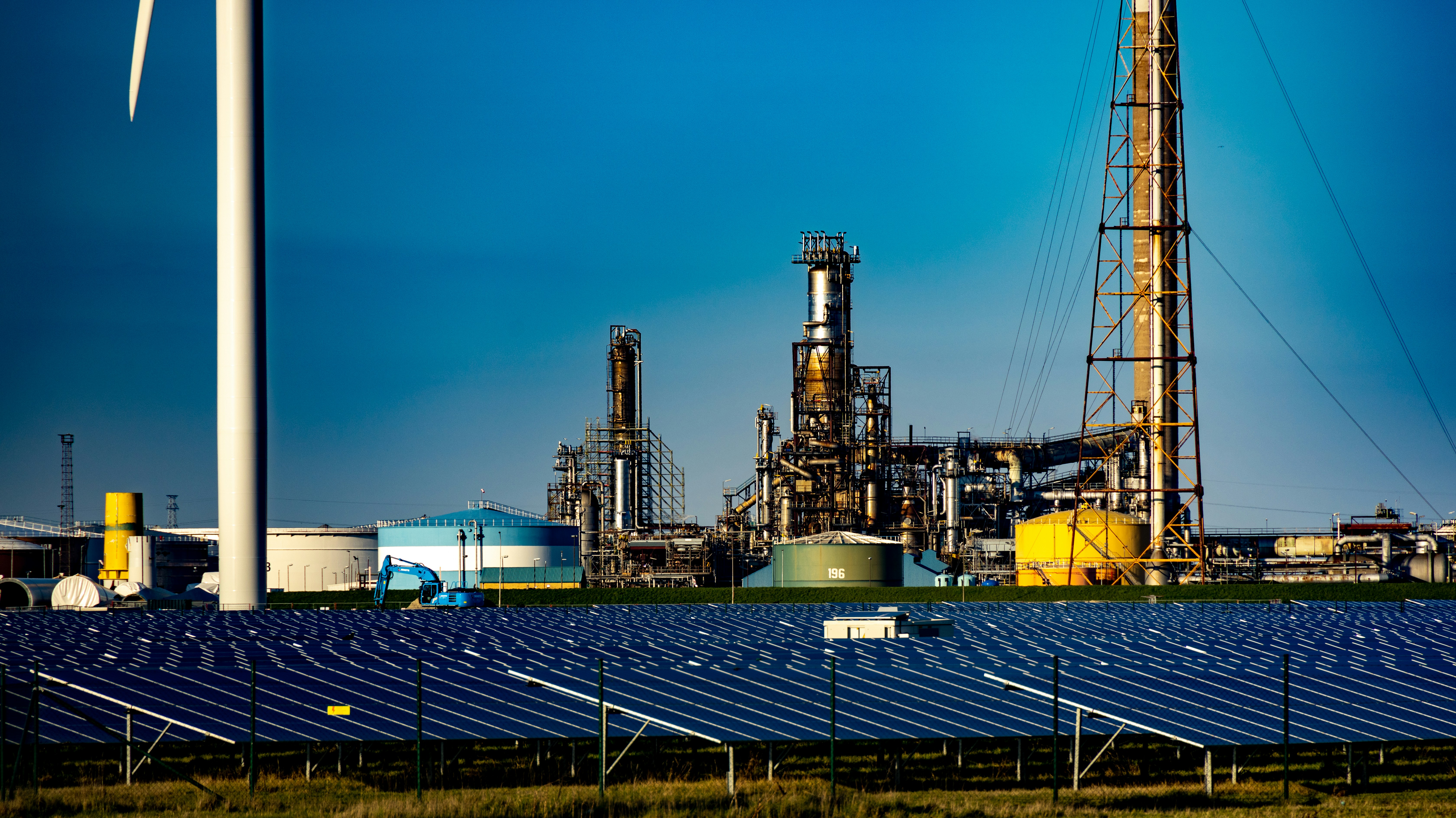
Emerging Renewable Energy Technologies
The renewable energy sector is experiencing a rapid transformation due to emerging technologies that significantly enhance efficiency and cost-effectiveness. At the forefront of these innovations are advanced solar panels, which utilize cutting-edge materials and design enhancements to capture sunlight more effectively than traditional models. These next-generation solar cells, including bifacial and perovskite solar panels, are known for their superior energy conversion rates, expanding their usability in various environments. As manufacturers scale production, the cost of these advanced panels is expected to decline, making solar energy a more accessible option for both residential and commercial applications.
In addition to solar advances, offshore wind turbines are revolutionizing energy generation by harnessing the robust and consistent winds found at sea. The latest models feature larger rotor diameters and improved turbine designs, allowing for greater energy capture and higher efficiency. These offshore wind farms not only generate substantial electricity but also utilize less land compared to their onshore counterparts. The deployment of floating wind turbines is a notable development, enabling installation in deeper waters where wind speeds can be maximized, thus enhancing the economic attractiveness of offshore wind energy.
Energy storage solutions are also critical in addressing the intermittency of renewable sources. Innovations in battery technology, particularly lithium-ion and next-generation solid-state bateries, are leading the way in energy conservation and reliability. These systems are designed to store energy produced during peak generation times for later use, ensuring a consistent energy supply. Additionally, emerging technologies like pumped hydro storage and thermal energy storage are further diversifying the options available to balance energy demands with supply. The integration of these storage systems is pivotal in facilitating the transition toward a more sustainable energy landscape.
In summary, the continual development of advanced solar panels, offshore wind turbines, and innovative energy storage solutions represents a crucial step towards achieving a sustainable and accessible energy future. These emerging technologies not only improve efficiency and lower costs but also pave the way for widespread adoption, marking a significant stride in the renewable energy sector.
Government Policies and Global Initiatives
In recent years, the global landscape surrounding green energy development has been significantly influenced by government policies and international initiatives. These frameworks are pivotal in fostrring an environment conducive to adopting sustainble energy sources. Governments worldwide are keen to implement strategies that lead to reduced carbon emissions and promote renewable energy technologies. A key approach has been the provision of subsidies and tax incentives aimed at reducing the initial financial burden of transitioning to green energy solutions.
Subsidies for renewable energy projects, such as solar and wind farms, enable developers to overcome the high capital costs typically associated with these technologies. Moreover, tax incentives not only encourage private investment in clean energy but also spur innovation by lessening financial risks for companies venturing into this sector. Regulatory frameworks play an equally crucial role, setting standards and guidelines that ensure a more structured transition to sustainable energy systems. The design of these frameworks varies in effectiveness, but successful implementations can significantly accelerate the adoption of green technologies.
On a global scale, international agreements like the Paris Agreement offer a cooperative approach to addressing climate change challenges. Nations across the globe are working together to meet specific targets for reducing greenhouse gas emissions, thus driving a collective shift towards renewable energy. Such agreements foster collaboration, enabling countries to share best practices, technological advancements, and financial resources. As nations align their energy policies with these global commitments, the acceleration towards sustainable energy is palpable.
Ultimately, the collaboration between governments and their adherence to international agreements are foundational elements in promoting green energy development. By creating favorable policies and engaging in cooperative endeavors, countries are laying the groundwork for a sustainable energy future that benefits both the planet and its inhabitants.
The Role of Innovation and Research in Green Energy
Innovation and research are pivotal in advancing green energy solutions, significantly shaping the pursuit of sustainable energy sources. Over the past few years, we have witnessed groundbreaking developments aimed at enhancing energy efficiency and minimizing carbon footprints. These innovations are not confined to large corporations; rather, they are increasingly emerging from dynamic startups that prioritize sustainability. These new enterprises often introduce novel technologies and business models that challenge traditional energy practices, thus accelerating the transition to a greener future.
Research institutions and universities play a vital role in this transformative process. Collaborations between academic entities and industrial partners fodter an environment ripe for innovation, enabling the development of advanced materials, improved energy storage systems, and enhanced conversion technologies. For example, recent advancements in solar cell technology and wind turbine efficiency are a testament to how collaborative research can lead to significant improvements in energy generation methods. This synergy not only promotes knowledge sharing but also bridges the gap between theoretical research and practical application.
Moreover, securing adequate funding and investment is critical to support ongoing research and development in green energy. Governments, private investors, and philanthropic organizations are increasingly recognizing the importance of financial backing for innovative projects. These investments help scale promising technologies and boost their adoption across multiple sectors. Additionally, public policy that prioritizes renewable energy research further stimulates innovation, leading to widespread benefits such as job creation and economic growth. As stakeholders continue to invest in green energy solutions, it ultimately contributes to building a resilient energy landscape that can address the challenges posed by climate change.
Consumer Engagement and the Shift Towards Sustainability
In recent years, there has been a noticeable shift in consumer behavior towards the adoption of green energy solutions. This shift is not merely a passing trend; rather, it indicates a fundamental change in how individuals engage with sustainability. Consumers are increasingly prioritizing eco-friendly products and services, driven by heightened awareness of climate change and environmental degradation. This transformation is catalyzed by a collective understanding of the long-term benefits associated with sustainable practices, both for the planet and personal well-being.
The demand for sustainable products has surged significantly, with eco-conscious consumers actively seeking alternatives to conventional options. This riing demand has, in turn, fueled the growth of eco-friendly companies dedicated to minimizing their environmental impact. Many of these organizations are championing sustainable energy solutions, such as solar panels, wind energy systems, and energy-efficient appliances, which empower consumers to make environmentally responsible choices. Consequently, a vibrant market for green energy solutions is emerging, illustrating the power of consumer influence in shaping business practices.
Moreover, consumer awareness campaigns play a pivotal role in this evolving landscape. These initiatives educate the public on the importance of sustainability and the impact of collective consumer choices on energy consumption and resource management. As more individuals become informed about their environmental footprint, they are more likely to opt for renewable energy sources and businesses that demonstrate a commitment to sustainable practices. This increase in consumerengagement promotes a cycle of demand for green products and, ultimately, fosters broader societal change in the energy market.
As consumers continue to make conscious choices, they can contribute decisively to a sustainable future. By supporting eco-friendly companies and advocating for sustainable options, individuals can drive the transition towards a more environmentally conscious energy landscape. This collective effort not only enhances consumer empowerment but also reinforces the essential need for ongoing innovation in green energy development.


